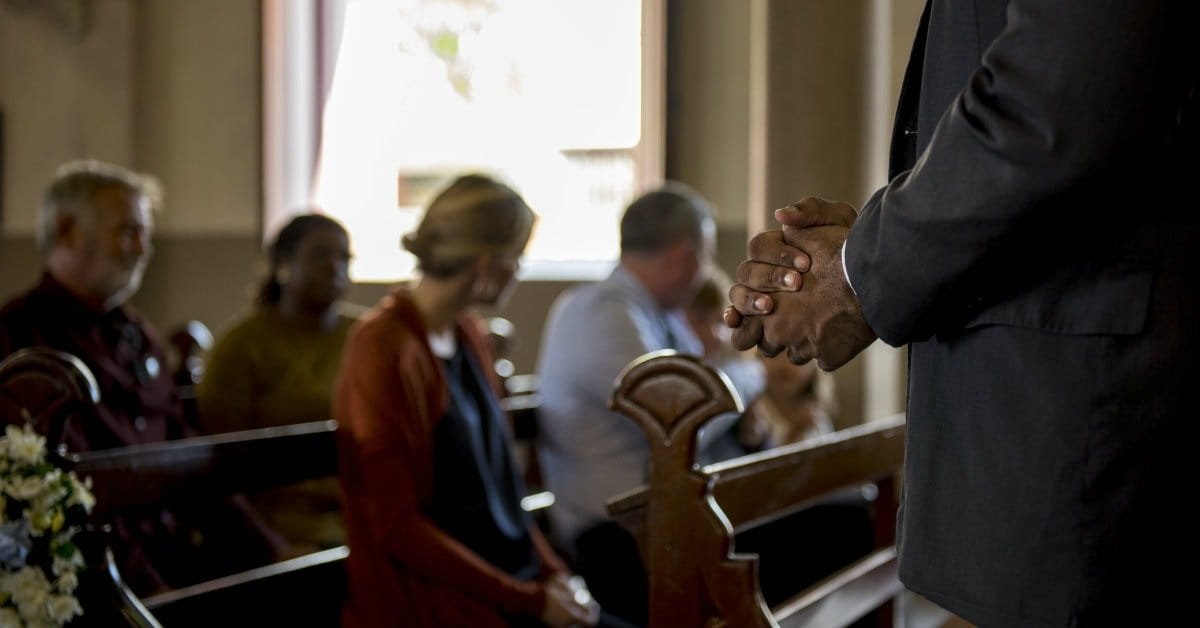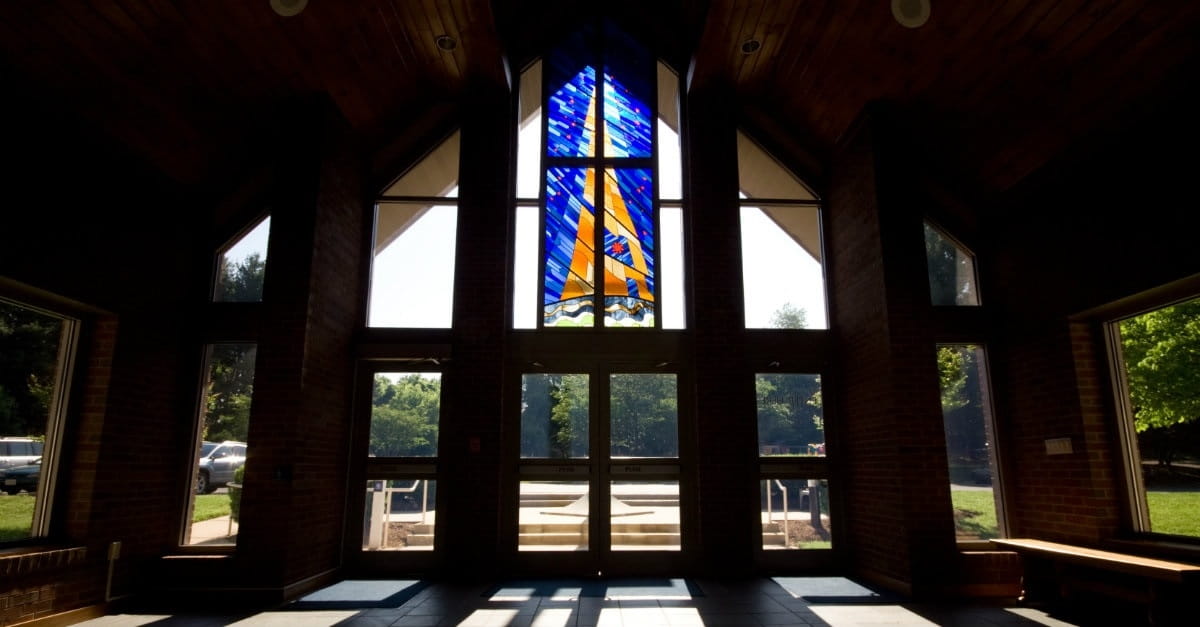
Most believers will change churches at some point in time. Whether it’s a disagreement of church policy or a physical move across the country, the search for a church can be as daunting as finding a new doctor. What are some of the questions we need to ask before joining a fellowship?
Photo courtesy: Unsplash.com
1. What does this church teach?

Denominational differences, biblical interpretation, even various versions of the Bible factor in to what is taught. We need to know what the church believes and how standards will be set.
Check out the website and read through the Statement of Faith. Print it out and discuss it as a family. If you’re married, it’s important to be in agreement on faith beliefs. If you’re single, does this particular church include programs for singles? If you have children, use this opportunity to share why faith is important to you.
Photo courtesy: ©Thinkstock/Rawpixel
2. What are the demographics of the members?

A church that is peopled mostly by the elderly will not be able to provide programs for youth and children. A congregation of mostly young families will miss the wisdom and maturity offered by the older generation.
If the membership has no diversity of race, economic stature, or cultural differences — the focus will lack the rich texture of the Revelation 7:9 tribe. As you visit, look around the congregation and check out the demographics.
Photo courtesy: ©Thinkstock
3. What kinds of programs are offered?

Programs in the church are affected by the size of its membership. Your demographic figures as imperative in answering this question. Children will want a youth group and a kids’ ministry. Grandparents will seek company in a group for mature members. For couples, the small group offerings will be important. If the church has no programs for single moms, they have missed the biblical imperative to care for the widow and orphan.
As we progress through life, we seek different programs. We also need to view the various offerings as places where we can serve and use our spiritual gifts.
Photo courtesy: ©Thinkstock/Rawpixel
4. What is the overall mission of the church?

Most churches follow the lead of the senior pastor in determining what direction they will go. Elders are tasked with keeping the focus biblical and on target. Is the church you’re considering one that is streamlined for speedy growth or is it focused on planting new churches? Is there a missions emphasis and how many cross cultural workers do they support — both international and local? Does this church care for the poor both in action and in a welcoming spirit?
The central mission of the church and its core values should be focused on biblical principles as well as cultural needs.
Photo courtesy: ©Unsplash/KaylaHarris
5. How does the leadership operate?

General rules for operation of church leadership were laid out by the Apostle Paul. Like all believers, the leaders of the church have spiritual gifts and personal talents. One leader may be more service oriented while another is a gifted teacher or administrator.
A church that includes various personalities in their leadership team has a better chance of communicating with the demographics of today’s varied generations. Again, this emphasis depends on the size of the church and how many salaried leaders they employ.
Photo courtesy: ©Thinkstock/Arrangements-Photography
6. What kind of music leads you to worship?

In surveys of church members, the type of music and its volume creates more criticism than any other issue. A Barna survey calls this issue “Worship Wars.”
If music style is important for your worship attitude, check out how the church operates its musical programs. Do they sing traditional hymns or more of the popular praise music? Is one service devoted to hymns and organ accompaniment while the other uses drums, keyboards, and choruses?
Volume and acoustics are important to folks with hearing issues. Know what kind of music you need, but also be willing to adjust and try something new.
Photo courtesy: ©Thinkstock/Digital Vision
7. What kind of history does this church carry?

Check out the back story. Has there been a change of pastors every few years, signaling a controversial leadership problem? Is a church split part of the history? If so, how did the elders handle it? Does the church have a rich history of service and spiritual growth? Do the staff seem happy serving in this church?
Talk to the people who attend. Ask them to list strengths and weaknesses. If possible, talk to people who left and find out why. Be brave enough to ask leaders the hard questions and observe their body language.
Photo courtesy: ©Thinkstock/miroslav_1
8. What are the logistics of this church?

Whether or not we want to admit it, facilities are important. Is the church accessible with curb cuts, handicapped parking spaces, and plenty of elevators? How comfy is the seating? For people with back problems, the pews or chairs can create distractions to worship.
Many people will judge a church by the number of parking spaces and how easy it is to leave after services. Others will determine logistics by how well the facility is taken care of: clean bathrooms, safe nurseries, a well-stocked kitchen and dining hall, décor that is up to date.
Location, location, location follows for a church as well as for housing. Few of us will travel an hour or more to find our church. If we’re going to be involved in the membership, we don’t want a long commute.
Photo courtesy: ©Thinkstock/qingwa
9. How are the finances handled?

A financially healthy church underscores what it values. Where the treasure is determines the strength of the heart (Luke 12:34). Check to see if this church supports missions and how much of a percentage is spent on ministry versus salaries. Is the church in debt? Are the leaders committed to financial stewardship? Financial records should be open to the members. Ask to see a pie chart of how funds are distributed.
Twice, I have joined churches that started capital campaigns a few weeks after I made my membership decision. Maybe it was just an accident of time. Maybe it was a mistake on my part. But during the months I longed to become involved, join a small group, and use my spiritual gifts, I was bombarded with mailings for money.
Photo courtesy: ©Thinkstock/MARIAMARTAGIMENEZ
10. What is the process and timeline for joining?

Will you be expected to meet with elders and give your testimony or stand in front of the church and answer questions? Will this church offer meetings to find out more about you and answer your pertinent questions? How much time, energy, and extra meetings are involved in the process of joining the church?
Whatever the timeline, take plenty of time to think through your concerns and expectations. Joining a church is an important decision for your entire family. You may be connected to these people — both emotionally and spiritually — for years.
Making the “church” decision will connect you with a certain worship philosophy and belief system. Consider all the angles of membership, pray for discernment, and then step forward to find the best church fellowship for you.
RJ Thesman is a Certified Writing Coach and the author of 11 books. She currently attends a Presbyterian (EPC) church. Connect with Thesman at her website: https://RJThesman.net, on Facebook, Twitter, and LinkedIn.
Photo courtesy: ©Thinkstock/vadimguzhva